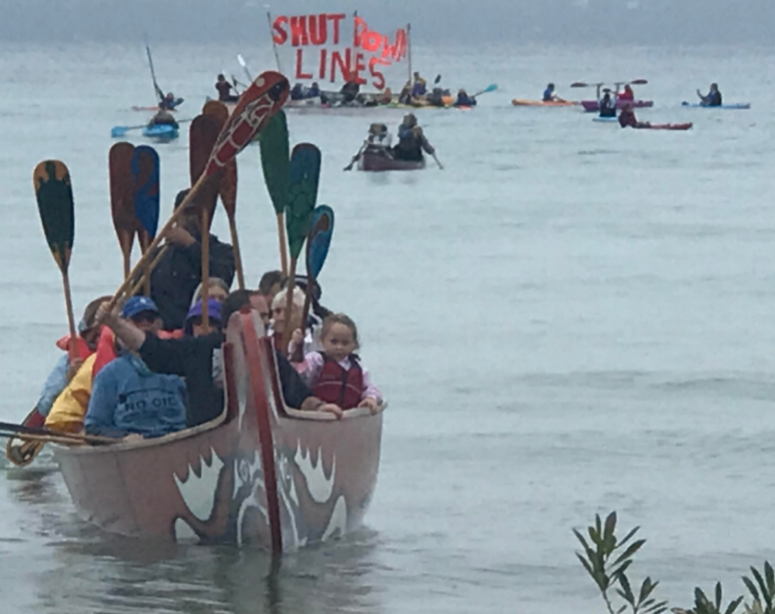
- Details
- By Native News Online Staff
On Wednesday, the Michigan Court of Appeals rejected a challenge from Tribal Nations and environmental groups aiming to overturn the Michigan Public Service Commission’s approval of Enbridge’s Line 5 tunnel project beneath the Straits of Mackinac. The project would prolong the operation of the aging pipeline, transporting oil through the heart of the Great Lakes for decades, primarily to Canadian consumers.
“We are disappointed, but not surprised by this decision,” Bay Mills Indian Community President Whitney Gravelle. “We will continue to press forward in this fight. Line 5, tunnel or not, isn’t doing the US any favors. This is a Canadian pipeline that benefits Canadian consumers, while putting US residents and treaty-protected waterways at great risk.”
The Bay Mills Indian Community, Grand Traverse Band of Ottawa and Chippewa Indians, Little Traverse Bay Band of Odawa Indians, and Nottawaseppi Huron Band of the Potawatomi contended that the Commission excluded critical evidence regarding Michigan’s reliance on Line 5 and the significant environmental risks associated with potential oil spills. The three-judge Appeals Court ruled that the Commission “acted reasonably,” upholding the permit decision for now.
“Line 5 is an outdated pipeline that threatens the Great Lakes and water resources throughout Michigan,” said Earthjustice Senior Associate Attorney Adam Ratchenski. “Regardless of today’s decision, it was backwards and dangerous for the Commission to approve this project without a true consideration of whether Michiganders need it. Nobody wants their water poisoned or their property values torpedoed in order to keep Canadian oil and gas flowing through the Great Lakes.”
Enbridge must still apply for a new permit from the state's Department of Environment, Great Lakes, and Energy, which will solicit public comments. Additionally, the project requires approval from the U.S. Army Corps of Engineers before construction can proceed.
“Millions of people today and those generations still to come depend on the clean waters and wildlife of the Great Lakes, and Line 5 is a major threat to their future,” said Attorney David Gover with the Native American Rights Fund (NARF). “We will continue to seek justice and need every voice in this fight to protect the Great Lakes.”
More Stories Like This
Feds release draft long-term plans for Colorado River managementApache Leader Walks 60 Miles to Court Hearing That Will Decide Fate of Sacred Oak Flat
Rappahannock Tribe Raises Sovereignty and Environmental Concerns Over Caroline County Water Permit
Klamath Indigenous Land Trust Purchases 10,000 Acres as Salmon Return
Trump signs law that revokes some limits on drilling in Alaska’s National Petroleum Reserve
Help us defend tribal sovereignty.
At Native News Online, our mission is rooted in telling the stories that strengthen sovereignty and uplift Indigenous voices — not just at year’s end, but every single day.
Because of your generosity last year, we were able to keep our reporters on the ground in tribal communities, at national gatherings and in the halls of Congress — covering the issues that matter most to Indian Country: sovereignty, culture, education, health and economic opportunity.
That support sustained us through a tough year in 2025. Now, as we look to the year ahead, we need your help right now to ensure warrior journalism remains strong — reporting that defends tribal sovereignty, amplifies Native truth, and holds power accountable.
 The stakes couldn't be higher. Your support keeps Native voices heard, Native stories told and Native sovereignty defended.
The stakes couldn't be higher. Your support keeps Native voices heard, Native stories told and Native sovereignty defended.
Stand with Warrior Journalism today.
Levi Rickert (Potawatomi), Editor & Publisher


